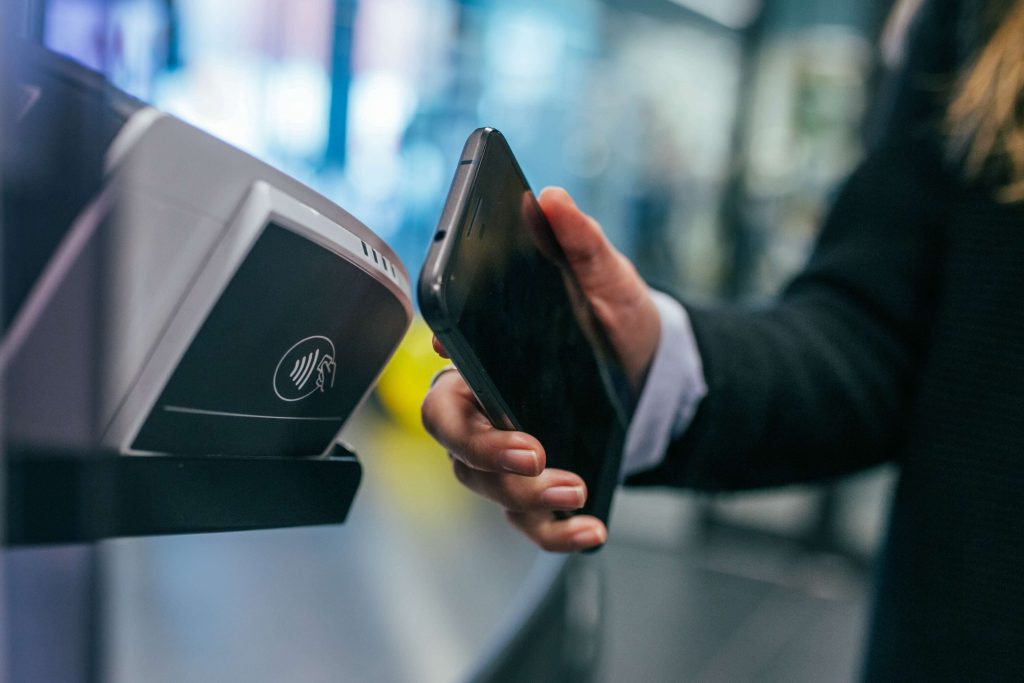This is the last in our series on payments in the UK today and how one of the nation’s most common payment methods, the Direct Debit, can be enhanced by. What has been covered so far is where our current payments landscape is lacking and who misses out if Open Banking technology is not fully supported, and the benefits that are well within grasp for businesses, consumers and UK plc if the tech advances are seized by users, government and regulators alike.
This is what is going to be covered in this 4-part series:
- Part I – Today and Today’s Challenges – why organisations need to grasp this opportunity and demand better
- Part II – The future – the new kid on the payments block, ‘Variable Recurring Payments’ (VRP), and how VRP can deliver enhanced services over and above the limitations of using Direct Debit, reaping benefits for businesses and their customers
- Part III – WIIFM? What’s in it for me, and why businesses need to keep ahead of the competition and adopt now to retain their customers and deliver growth
- Part IV – the Regulatory drivers – how are we going to get to the future?
To recap, in the last episode, the context of ice cream and Unilever for the invention of the Direct Debit was discussed. It was demonstrated that the Direct Debit was the new evolution of its day, with the banks reluctant to move to such a new, convenient and efficient payment method that businesses, both supplier and customer, were demanding.
In this final episode, we look at why the UK is set to drive this, and the regulatory and economic drivers for VRPs.
There are situations, albeit they will be decreasing in the downturn we’re experiencing, that are suited to Direct Debit, both on the collecting business and the paying consumer sides. On the business side, those larger, established, and perceived to be lower risk corporates; and on the payer side, the consumers with regular income, float in a bank account to cover forgotten Direct Debits and/or unanticipated spending leaving the account, and for whom oversight and control over finances and accounts is not a priority.

However, society is no longer in the majority made up of people in jobs in which they stay for decades with relative security as was the case more in the 1960s. The UK today has many small and medium businesses trying to access bank accounts, many workers on zero hours contracts with no occupational security or even foresight as to their working hours or finances, many more people self-employed with lumpy incomes both high and low, and midst a winter of discontent, those suffering lower pay packets due to striking or just lower pay packets in real terms due to soaring inflation and the cost of living; all these people need to be better served in the paying and collecting of money in their daily lives.
Whilst Direct Debits work for those few outlined, a global pandemic disrupting personal worlds, the way people have lived and worked over the passed nearly three years has made many stop and think about expenditure, priorities, a work life balance, and the overall state of their finances. And with the Pandemic being followed by the drastic economic environment, an even closer eye will be kept on finances and controlling spend.
In research carried out by Ordo, it was discovered that:
• 80% of consumers said they were worried about money and cut back on spending during the UK COVID-19 lockdown
• 40% of Direct Debit users plan to cancel at least one Direct Debit
• In cancelling Direct Debits, 40% would move to expensive cards and 30% to hard to process and reconcile bank transfers and cheques
• Over 50% of people who cancelled Direct Debits wouldn’t put them all back now we’re out of lockdown
With numbers so high for having assessed finances and concluded things had to change, where were those changes going to happen?
• Gym memberships, streaming services and magazine subscriptions topped the list of Direct Debits that consumers are most likely to stop
• People in London have cancelled more Direct Debits than anyone else in the country since COVID-19 shut the country down
• 13% of people in the east Midlands have seen fit to put a pause on subscriptions like Netflix, veg boxes or National Trust memberships.
As we emerge from COVID only to see Russia invade Ukraine fuelling a cost of living crisis for many and the recession now confirmed, it is imperative that government, business and society move to Open Banking technology without delay, a secure technology that makes moving money more cost efficient, which allows people to keep better track and control of their finances, and can be provided as a friction free joined up digital service that is more secure than other payment methods available today.
The next stage of Open Banking, and the final gap to be closed, is enabling repeated payments to be made under a single Open Banking agreement – a so-called ‘Variable Recurring Payment agreement’. It is paramount that VRP, Variable Recurring Payments, are supported, enabled and embraced. Not only does VRP better meet the needs of users, but it meets some important industry and regulatory requirements, and this is why government and regulators cannot afford to take their foot off the gas just yet in ensuring there are enough regulatory drivers and pressure enabling delivery of the full gambit of VRP solutions possible:
• Extending competition and innovation in payments. Using Open Banking VRP and Faster Payments (and its NPA successor, more explanation below) as the underlying delivery mechanism for this new service means that multiple, competing FCA authorised TPPs (see jargon buster below) can offer the service directly to business customers, broadening competition in this important payment class.
• Enabling more dynamic innovation in payments. Not only does this model provide business customers with supplier choice on price, but it also enables much more dynamic innovation, with different TPPs innovating on top of the core Open Banking VRP functionality, unlike Bacs Bureaus’ offering of Direct Debit services which are constrained by the narrow rules and technical specification of the common central service. Because many thousands of intermediaries and end service users access the common service, innovation and change in the core service is very slow, as change needs to be accepted by all users and then scheduled over a long period to avoid expensive forced migration.
• Reducing Industry coordination requirements. Because individual TPPs’ delivered services will not be required to interwork with each other (VRP gives each service the ubiquitous access to end customers it needs), there is a much-reduced need for industry coordination, standards setting and rulemaking. These processes, which are a requirement of centrally provided services are costly to operate, because of their nature have a large governance overhead, and naturally slow innovation as they must operate in a lowest common denominator/slowest adopter mode.
• Allowing the earlier retirement of the central Direct Debit service. By introducing these competitive services over VRP and the Faster Payments system, there will no longer be a requirement to redesign, rebuild, re-platform and migrate to a new central replacement for the Direct Debit service. This will reduce industry costs (the successor services will be funded by private investment into TPPs). Not only will industry costs be avoided, but the imperfect process of a central platform re-tender will no longer be required with all the risks and costs that that brings.
• Decoupling Direct Debit change from NPA Faster Payments replacement for mutual benefit. If Direct Debit is to be replaced by a new central service, then recent risk reduction changes required by the Payment Systems Regulator (the PSR) mean that such a project cannot get underway until the Faster Payments replacement NPA programme is well underway/delivering. The VRP model can be started now and will be seamlessly migrated over to the NPA clearing and settlement service by each bank in the same way all existing FP payments will be migrated. This decoupling not only maintains the risk reduction benefits of the PSR’s recent NPA intervention but brings the service user and economic benefits of the Direct Debit replacement forward by as much as five years and, if appropriate regulator pressure is applied, landing before the FP replacement programme starts making a difference.
• Reducing the cost-to-serve for banks. Direct Debit requires teams of people within each bank, along with complex decisioning systems, handling the Direct Debits that fall outside of pre-approved limits (either for end-consumers or for the businesses acting as Direct Debit Originators). Direct Debit carries risk, as the Direct Debit originator’s bank will credit the value of all Direct Debits initiated to the Direct Debit Originator before knowing which transactions will be honoured by the paying bank, so banks have to manage settlement limits, handle reversals, refunds, guarantee claims etc. Replacing this laborious complex process with clean, irrevocable VRP transactions will give the banks an opportunity to streamline their back office processes.
Jargon buster:
TPPs or Third Party Providers, were created under legislation, the 2nd Payment Services Directive (PSD2). TPPs are authorised and regulated by the FCA with assessed and approved business and security models, and people, so you can be sure they’re fit and proper with secure systems. Only TPPs regulated by the FCA can provide Open Banking payment services, so you know they’ll be as safe as bank systems.

Jargon buster:
What’s the NPA? The New Payments Architecture is a blue print for a replacement of the UK’s payment systems and surrounding eco-system, comprising competitive layers over systemically important regulated payment systems such as Faster Payments (FP). Replacing today’s systems will ensure they’re up to date and continue to lead the world in payments and drive the economy. There are central regulated elements, those layers that involve clearing and settlement by clearing banks who are required to have, or have access to, settlement accounts at the Bank of England. The current systems relevant to this blog are Faster Payments and Bacs. They both transfer money between banks who clear and settle at the Bank of England, and are regulated by the Payment Systems Regulator. The replacement for the clearing and settlement layer of the NPA for instant payments, what is Faster Payments today, is still being procured at the time of writing. In order to de-risk the replacement FP procurement exercise, the PSR required Bacs to be decoupled. As Open Banking and VRP will deliver enhanced Direct Debit functionality more in-keeping with the needs of society today, once the instant clearing and settlement layer of the NPA (FP) has been procured, it will be hard to justify re-building a Bacs system which has already been surpassed by the solutions modern technology through Open Banking could deliver. Lower cost, competitively provided enhanced solutions for the Direct Debit that could be available sooner are therefore preferable than waiting and funding a new central system.
So what does this mean for UK businesses and their FinTech partners?
Not only are consumers and businesses demanding better and more efficient ways of collecting and making payment, there are societal and regulatory drivers too. These incentives are rapidly colliding in 2022 and into early 2023 which means now is the time to seize the day for Open Banking, and to close the final gap for ensuring instant, convenient and secure payments can be made directly from the payer’s bank account to a receiver’s bank account for repeated payments, as well as ad hoc single payments.
Open banking has thrived in 2022, with compelling stats that cannot be ignored:
- 5 million Open Banking payments in May 2022 by Businesses and consumers
- 6 million active users of Open Banking in the UK
- A record 1 billion API calls during May 2022 by the Open Banking community (this metric is a key barometer for the level of activity that the Open Banking industry generates each month. From information calls to payment calls – hitting the 1 billion mark shows the huge rise in activity since the first release of the API specifications in July 2017)
- Adoption has continued to grow, with 10–11% of digitally-enabled consumers now estimated to be active users of at least one Open Banking service. This is up from 6–7% in March 2021
- In the six months to March 2022, there were 21.1m Open Banking payments, compared with 6.1m in the same period in 2021. Month-on-month growth is running at around 10%
- At the end of 2021, cumulatively over 26.6m Open Banking payments had been made An increase of more than 500% in 12 months
- 64% of consumers have claimed that using Open Banking savings apps increased their total level of savings and helped them develop a regular savings habit, while using money management apps improved their understanding of their finances, helping them to feel more in control of their finances*
*Source: Open Banking Implementation Entity
Open banking is already being used for good, and the time is right to continue innovating and extend this technology to the broad landscape of payments we all have to make and receive every day. There was once a time when the mobile phone was a fad and people didn’t know why they would need to carry a phone around with them, now that phone is never out of our hands, and it has become our bank in our pocket checkable 24×7….Open Banking and VRP is what will enhance Direct Debit to meet the needs of consumers and business in 2023 and beyond.
If you would like to discuss any aspect of this 4 part series looking at the UK payments landscape and how Ordo’s technology could ensure your business has the competitive edge and keeps its customers, get in touch today.
Get the full series here.



